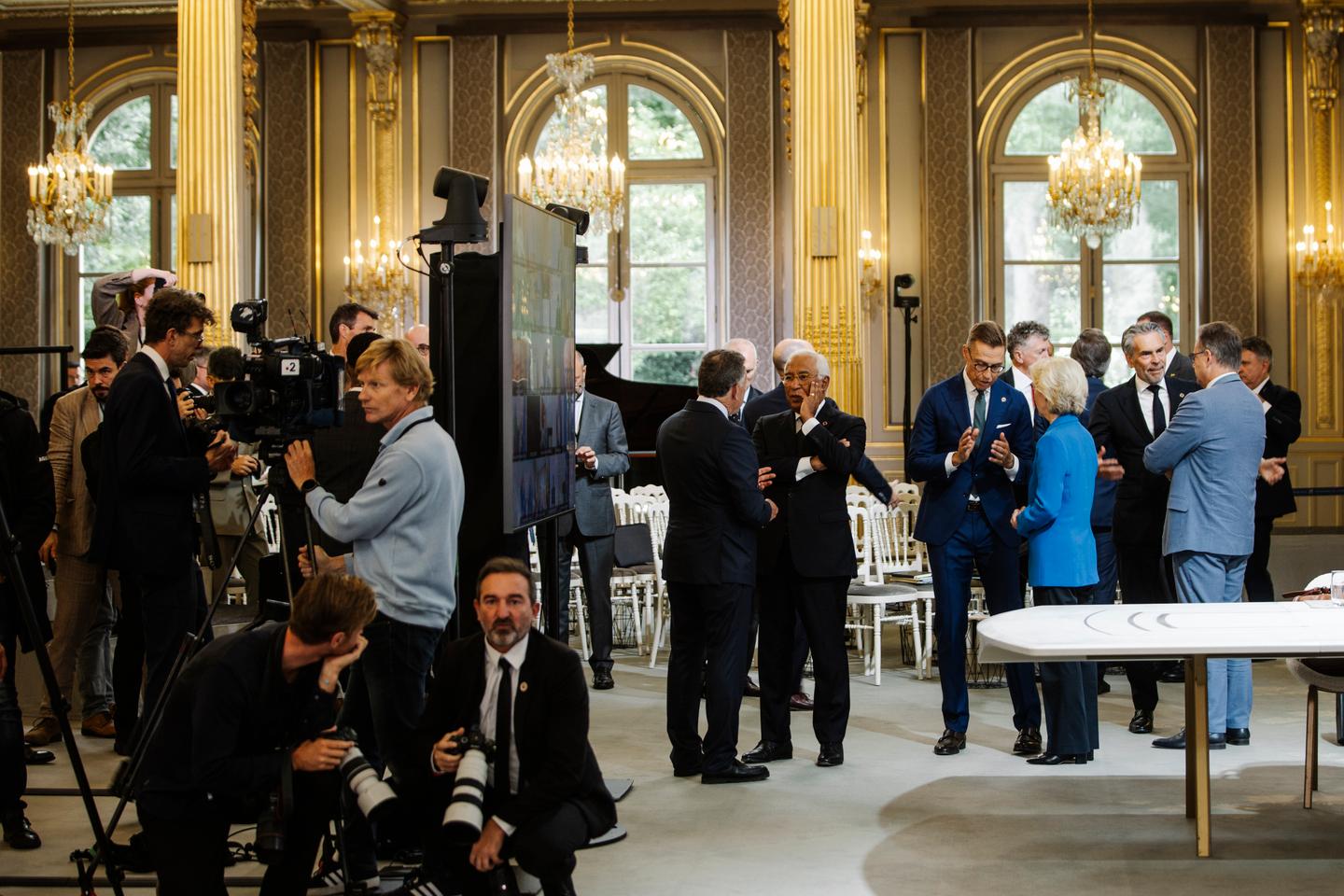
Donald Trump has decided to rename the US Department of Defense the « Department of War, » arguing that under this name, which was used until 1947, the United States « won everything, » as he put it. Unfortunately, such resolve is far less obvious when it comes to the Russian war in Ukraine.
European partners of the US experienced this first-hand once again on Thursday, September 4, during a lengthy phone conversation with the American president, who was with his vice president, JD Vance. The meeting, organized from Paris following a hybrid summit of leaders from the « coalition of the willing » – which brings together 35 countries prepared to support Ukraine’s defense if a peace agreement is reached with Moscow – was mainly intended to secure from Trump a concrete commitment from the US military to support the European effort.
Once again, the American president hesitated to make that commitment, instead voicing his frustration with Europe and China. According to French President Emmanuel Macron, Trump was « very clear » about his intention to support the security guarantees that Europeans are prepared to provide Ukraine, but he did not specify how this support would take shape on the ground. This, Macron explained to the press, is a matter of « planning » that remains to be « finalized » in « the coming days. »
No one can accuse the Europeans, or Ukrainian President Volodymyr Zelensky, who was present in Paris, of failing to do everything possible to bring Trump to their side. After the disastrous US-Russia summit on August 15 in Alaska, where Trump rolled out the red carpet for Vladimir Putin and lifted his threat of sanctions with no concessions, the Europeans traveled together to Washington on August 18, united in their efforts to persuade him to take a firmer stance. Keeping up the pressure on Washington was the purpose of Thursday’s meeting in Paris.
First, ending hostilities
The coalition has done its part: Twenty-six countries, Macron announced, are now « formally committed to deploying troops in Ukraine or to being present on the ground, at sea or in the air » to help guarantee the country’s security in the event of an agreement to end hostilities. Zelensky welcomed this as « the first concrete step in a long time. » But, he added, « it is important that the United States is on our side. » Several European countries share this view; they are ready in principle to commit, but reluctant to specify their contributions without certainty about US support.
So Europeans must continue this Sisyphean task with an unpredictable US president. But the core problem remains. First, reaching an agreement to stop the fighting in Ukraine when the main player, Putin, shows no sign of doing so. On the contrary, shortly after the Paris meeting, the Kremlin made clear that Russia was « absolutely » opposed to the security guarantees offered by Ukraine’s allies, and accused Europeans of « hindering » efforts to resolve the conflict. After scoring a point in Alaska, the Russian president secured another victory in China this week, alongside President Xi Jinping. He is in no mood to negotiate an end to his war in Ukraine. Will Trump finally follow through on his threat of sanctions against Russia? That, in reality, is the central question.
Poster un Commentaire